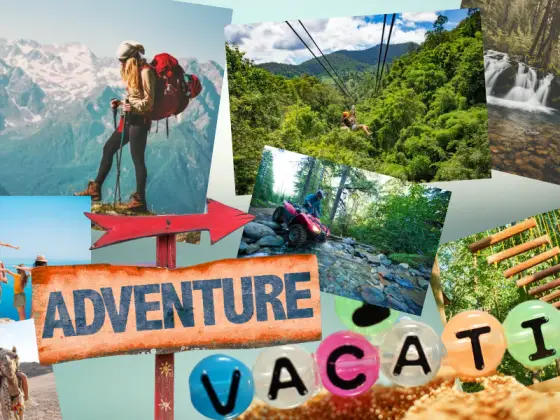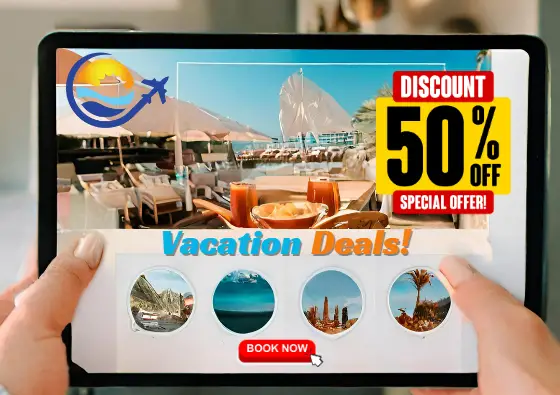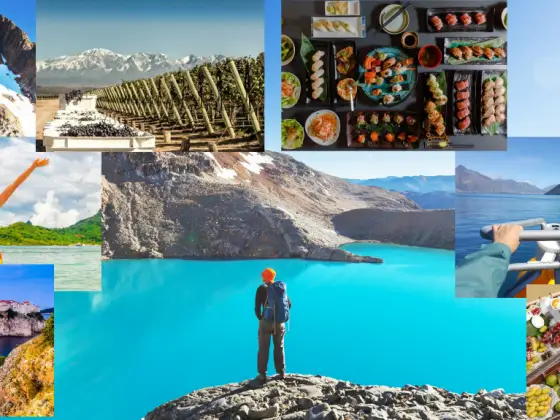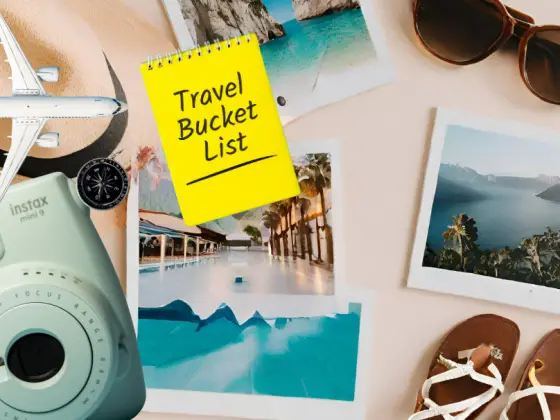Travel is an exhilarating journey into the unknown, a tapestry of experiences waiting to be woven. Yet, beneath the allure of exploration lies the lurking specter of stress. The art of stress-free travel is a symphony of preparedness and adaptability, and this comprehensive guide is your conductor’s baton to harmonious journeys.
Pre-Travel Planning
Laying the Foundation for a Seamless Journey
Research Your Destination: Before embarking on any adventure, delve deep into your destination’s soul. Learn its customs, traditions, and weather patterns. It’s your roadmap to blending in seamlessly.
Create a Detailed Itinerary: Crafting an itinerary is like composing a symphony; each note is a different adventure. Plan your days, but leave room for improvisation to savor unexpected delights.
Travel Insurance: A Must-Have: Safeguard your expedition with comprehensive travel insurance. Be it a medical emergency or flight cancellation, this safety net ensures peace of mind.
Passport and Visa Essentials: Don’t let travel hiccups begin at immigration. Ensure your passport is up-to-date, and research visa requirements well in advance.
Packing Smart
Mastering the Art of Packing Light and Right
The Versatile Packing List: Curate a collection of garments that can be mixed, matched, and layered to suit any occasion or climate. It’s all about versatility.
Efficient Packing Techniques: The roll vs. fold debate ends here. Master the art of packing cubes and compression bags, saving space and reducing wrinkles.
Travel-Friendly Wardrobe Selection: Opt for wrinkle-resistant, quick-dry, and moisture-wicking fabrics. Say goodbye to outfit-related stress.
Packing Tech Gadgets: Embrace the digital age with compact chargers, universal adapters, and power banks to ensure you stay connected and powered up.
Choosing the Ideal Accommodation
Finding Comfort Away from Home
Types of Accommodation: From luxury hotels to quaint B&Bs or trendy hostels, the key is choosing the one that aligns with your travel style and budget.
Location Considerations: Proximity to attractions, public transport, and safety are paramount when selecting your abode.
Reviews and Recommendations: Peer into the experiences of fellow travelers through reviews, but also be open to forging your own path.
Booking Strategies: Flexibility is your ally. Timing, discounts, and loyalty programs can save you a bundle on accommodations.
Navigating Airports
From Check-In to Take-Off
Airport Arrival: Arrive Early but Not Too Early: Striking the balance between punctuality and unnecessary waiting can be a fine line.
Streamlined Security Check: Minimize the fuss by following TSA rules, and consider TSA Precheck or Global Entry for smoother transits.
Carry-On vs. Checked Luggage: Embrace the carry-on philosophy for quicker arrivals and departures, but pack wisely to avoid confiscation.
Coping with Flight Delays: Flight delays are the unscheduled pitstops of travel. Know your rights, stay informed, and have diversions at the ready.
In-Flight Comfort
Tips for Long-Haul Flights
Choose the Right Seat: Seating can make or break your flight experience. Know your preferences and plan accordingly.
Staying Hydrated: The dry cabin air is your skin’s nemesis. Stay hydrated with water and moisturize your skin to arrive fresh.
Sleeping Aids and Strategies: A neck pillow, eye mask, and noise-canceling headphones can transform your red-eye into a peaceful slumber.
In-Flight Entertainment: Prepare a mix of activities to keep boredom at bay, from movies to books or puzzles. Your future self will thank you.
Coping with Jet Lag
Overcoming Time Zone Challenges
Understanding Circadian Rhythms: Jet lag is the consequence of your internal body clock misaligning with the destination’s time zone. Combat it with knowledge.
Pre-Travel Adjustments: Gradually adapt your sleep schedule before departure, nudging your body closer to your destination’s time zone.
Arrival Day Strategies: Maximize daylight upon arrival, but take strategic naps to acclimate gently.
Resetting Your Internal Clock: Melatonin supplements, natural light exposure, and caffeine can be your allies in resetting your circadian rhythm.
Local Transportation
Navigating Your Destination
Public Transportation vs. Private Transport: Choosing between public transport and private options like taxis or rental cars depends on your comfort and budget. Balance convenience and cost-effectiveness.
Maps and Navigation Apps: Modern technology offers a treasure trove of navigation aids. Download maps and apps for your destination, including offline options, to avoid getting lost.
Language Barriers: Overcoming language differences can be an adventure in itself. Familiarize yourself with basic phrases, consider language translation apps, and embrace non-verbal communication when needed.
Local Etiquette and Customs: Every destination has its unspoken rules. Respect local customs, be aware of dress codes, and grasp social norms to navigate with ease.
Safety and Security
Prioritizing Your Well-being
Scams and Tourist Traps: Unscrupulous individuals exist everywhere. Arm yourself with knowledge about common scams and traps to steer clear.
Staying Connected: Stay connected with family and friends by sharing your travel plans and itineraries. Consider local SIM cards or international phone plans to maintain communication.
Emergency Contact Information: Know the local emergency numbers and keep important contacts and medical information readily accessible. Preparedness is your best defense.
Protecting Your Belongings: Safeguard your valuables with lockable bags, anti-theft accessories, and hotel safes. Blend in with locals to avoid drawing undue attention.
Dining Abroad
Exploring Local Cuisine
Street Food Adventures: Sampling street food can be an exquisite culinary journey. Check for cleanliness and opt for busy stalls to minimize health risks.
Dietary Restrictions: If you have dietary restrictions, communicate them clearly and research local dishes that fit your needs. A culinary adventure can still be stress-free.
Restaurant Etiquette: Be aware of local customs when dining out. Tipping practices, table manners, and tipping are aspects to consider.
Food Safety: Ensure food safety by choosing reputable establishments, drinking bottled water, and avoiding uncooked or undercooked dishes in high-risk areas.
Cultural Sensitivity
Respecting Local Traditions
Dress Code Awareness: Different regions have varying dress codes. Dress modestly and respect religious or cultural clothing norms to show cultural sensitivity.
Photography Etiquette: Seek permission before taking photographs, particularly of individuals. Be mindful of restricted areas and always follow the rules.
Greetings and Gestures: Learn common greetings and gestures. A simple smile or a thank you in the local language can go a long way in building rapport.
Tipping and Bargaining: Understand local practices regarding tipping and haggling. Being a fair and respectful traveler benefits both parties.
Health and Wellness
Staying Healthy on the Go
Vaccinations and Health Precautions: Before embarking, consult your doctor for necessary vaccinations and health advice specific to your destination.
Medication Management: Carry a well-organized medical kit, along with prescriptions for essential medications, to manage unforeseen health issues.
Travel Health Insurance: Secure comprehensive travel health insurance to cover medical emergencies and unexpected health expenses while abroad.
Coping with Illness Abroad: In the unfortunate event of illness, know where to access medical care and have a plan for contacting your embassy or consulate.
Communication Strategies
Breaking Down Language Barriers
Language Translation Apps: Technology has opened the door to easy language translation. Download apps that translate spoken and written words for smooth communication.
Learning Basic Phrases: Familiarize yourself with common phrases and expressions in the local language. Locals appreciate the effort and it can be a great icebreaker.
Non-Verbal Communication: Sometimes, a smile, nod, or gesture can convey more than words. Be open to non-verbal communication to bridge language gaps.
Cultural Differences in Communication: Understand how cultural nuances affect communication. What might be polite in one culture could be seen as rude in another.
Money Matters
Managing Finances While Traveling
Currency Exchange: Exchange currency at reputable sources to get favorable rates, and carry a small amount of local currency for immediate expenses upon arrival.
Cash vs. Cards: Strike a balance between cash and cards, and inform your bank about your travel plans to prevent card issues.
Budgeting Techniques: Establish a daily budget to manage expenses effectively. Keep track of your spending to avoid financial surprises.
Emergency Funds: Always have a financial safety net for unexpected situations, like a missed flight or medical expenses.
Traveling with Technology
Leveraging Gadgets for Convenience
International Phone Plans: Invest in an international phone plan to stay connected without incurring exorbitant roaming charges.
VPN for Secure Browsing: A Virtual Private Network (VPN) ensures secure browsing and protects your data while using public Wi-Fi networks.
Travel-Friendly Apps: Install essential travel apps for maps, translation, currency conversion, and local recommendations. They are your virtual tour guides.
Backup and Data Security: Regularly back up your digital data and enable security features on your devices to prevent data loss and theft.
Adapting to Local Time
Maximizing Your Daylight Hours
Daylight Activities: Make the most of your daytime hours by planning outdoor excursions and exploring cultural attractions. Sunlight is your best ally.
Local Schedules and Time Zones: Align your activities with local schedules and time zones. Timing your meals, tours, and activities to match local rhythms ensures a seamless experience.
Nighttime Entertainment: Embrace the local nightlife by attending events, shows, and cultural performances to fully immerse yourself in the destination’s culture.
Overcoming Jet Lag: Use all your strategies to overcome jet lag, allowing you to savor every minute of daylight without feeling groggy.
Packing for the Return Trip
Organized and Prepared for Departure
Souvenir Considerations: If you’ve been collecting souvenirs, plan how you’ll pack them to avoid breakage and comply with customs regulations.
Re-packing Strategies: Re-packing can be quicker and easier if you maintain organization during your trip. Fold or roll items, and use your packing cubes wisely.
Checking Out of Accommodation: Before departure, double-check your accommodation for any forgotten items and notify the front desk of your checkout time.
Final Preparations: Complete any last-minute tasks like settling bills, confirming transportation, and ensuring all important documents are in order.
Post-Travel Reflection
Debriefing Your Journey
Capturing Memories: Ensure your travel memories last a lifetime by taking plenty of photos and journaling your experiences.
Journaling Your Experience: Document your thoughts, experiences, and emotions throughout your journey to relive the magic later.
Sharing Your Adventure: Share your travel experiences with friends and family through storytelling, photos, and videos, igniting their wanderlust.
Planning Future Travels: The end of one adventure marks the beginning of another. Use your reflections to plan future travels and continue your exploration.
Traveling with Children
Family-Friendly Travel Tips
Childproofing Accommodation: Ensure your accommodation is child-friendly and free of hazards. Babyproofing supplies can be a lifesaver.
Entertaining Kids on Long Flights: Prepare a variety of activities and entertainment to keep children engaged during long flights.
Educational Experiences: Use travel as a learning opportunity for children. Explore museums, historic sites, and cultural experiences together.
Safety Considerations: Keep a close eye on children in unfamiliar environments and have a plan for what to do in case of separation.
Solo Travel Adventures
Embracing the Journey on Your Own
Safety Precautions: Solo travelers should be vigilant, aware of their surroundings, and share their itineraries with trusted individuals back home.
Making New Friends: Embrace solo travel as an opportunity to meet new people. Join group activities or use social platforms to connect with fellow travelers.
Self-Reflection and Growth: Solo travel often leads to self-discovery and personal growth. Embrace solitude and use it to your advantage.
Exploring Your Independence: Solo travel empowers you to make every decision. Embrace the freedom to go where you want and do what you please.
Travel Etiquette and Respect
Enhancing Your Travel Experience
Eco-Friendly Travel: Minimize your ecological footprint by choosing sustainable transportation, accommodations, and activities.
Respect for Local Communities: Act with respect and humility when visiting local communities, understanding you’re a guest in their world.
Mindful Tourism: Be a mindful traveler by not damaging natural or cultural sites and respecting the environment.
Leaving No Trace: Keep nature pristine by disposing of waste responsibly and not leaving behind any evidence of your visit.
Crisis Management
What to Do in Unexpected Situations
Lost Passport or Documents: Have copies of important documents and know the steps to take if your passport or other essential items go missing.
Natural Disasters: Be aware of the local natural disaster risks and have a plan for evacuation or shelter.
Illness or Injury: In the event of illness or injury, seek medical care promptly and inform your travel companions or embassy.
Political Unrest: Stay informed about local news and follow the guidance of your country’s embassy in case of political unrest or emergencies.
Local Celebrations and Festivals
Embracing Cultural Celebrations
Research and Participation: Research local celebrations and festivals, and if timing allows, participate to experience the culture at its liveliest.
Etiquette and Respect: Pay respect to local traditions and religious ceremonies during celebrations. Understanding the significance adds depth to your experience.
Cultural Exchange: Engage with locals, ask questions, and be open to learning about their customs during these celebrations.
Souvenirs and Memories: Collect unique souvenirs from these events to commemorate your participation in local traditions.
Environmental Responsibility
Preserving the Beauty of Our Planet
Eco-Friendly Practices: Reduce waste, conserve energy, and support businesses and activities that prioritize environmental sustainability.
Reduce, reuse, and recycle: Be conscious of your waste. Reduce single-use plastic consumption, reuse items when possible, and recycle responsibly.
Supporting Conservation Efforts: Contribute to local conservation projects and support efforts to protect the environment and its wildlife.
Sustainable Travel Choices: Choose accommodations, tours, and activities that follow eco-friendly practices and benefit local communities.
This guide has taken you on a comprehensive journey through the world of stress-free travel. Whether you’re a rookie traveler or a seasoned explorer, these strategies and tips are your compass to navigate the complex terrain of travel with ease. Remember, every adventure is an opportunity to grow, learn, and create lasting memories. Bon voyage!















